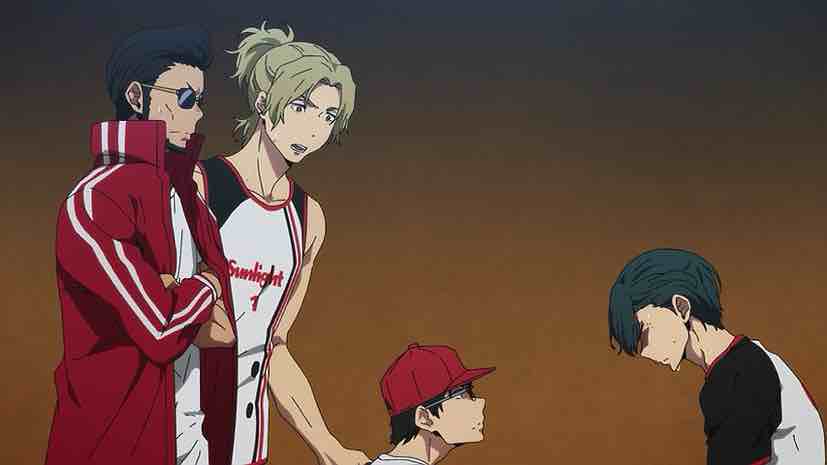 Things have been fraying around the edges with Ryman’s Club these past couple of weeks. The whole executive vice president thread was a write-off, and Kirishima Takuma is not my favorite of SunBev’s opponents. But the finale put things to rights in an almost totally satisfying way, and I’m heartily glad of it. Good endings count for a lot – they’re the last memory you take away from a show, after all. And given the considerable affection I have for this series, I’m relieved to have things end on a positive note.
Things have been fraying around the edges with Ryman’s Club these past couple of weeks. The whole executive vice president thread was a write-off, and Kirishima Takuma is not my favorite of SunBev’s opponents. But the finale put things to rights in an almost totally satisfying way, and I’m heartily glad of it. Good endings count for a lot – they’re the last memory you take away from a show, after all. And given the considerable affection I have for this series, I’m relieved to have things end on a positive note.
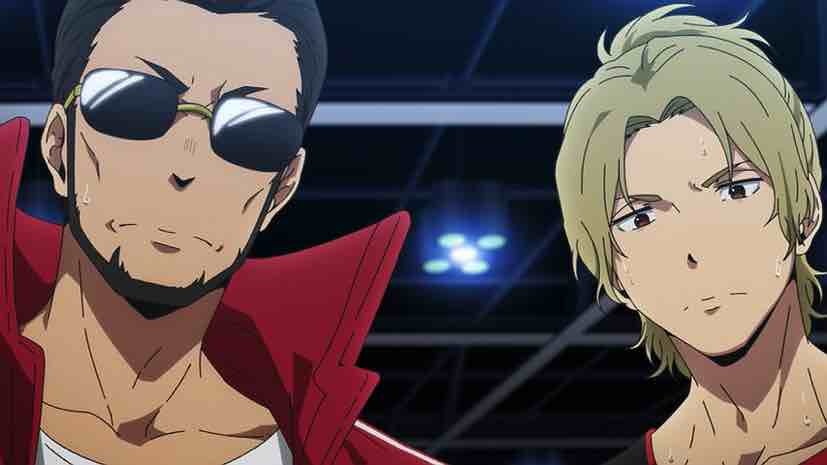 To be sure, SunBev winning the S/J league is a bit of a credulity stretch to begin with. And Tatsu and Mikoto – a guy with one good leg and a guy with one good eye – beating theoretically the top-ranked doubles player in Japan even more so. But when you’re doing sports anime in one cour, you don’t have time to always put the horse before the cart. I get that – an ending that might take 15 volumes of a sports manga to work up to comes after 12 episodes here. I’d rather a show jump the gun a little and deliver some nice closure than be diligent to realism and leave everything hanging.
To be sure, SunBev winning the S/J league is a bit of a credulity stretch to begin with. And Tatsu and Mikoto – a guy with one good leg and a guy with one good eye – beating theoretically the top-ranked doubles player in Japan even more so. But when you’re doing sports anime in one cour, you don’t have time to always put the horse before the cart. I get that – an ending that might take 15 volumes of a sports manga to work up to comes after 12 episodes here. I’d rather a show jump the gun a little and deliver some nice closure than be diligent to realism and leave everything hanging.
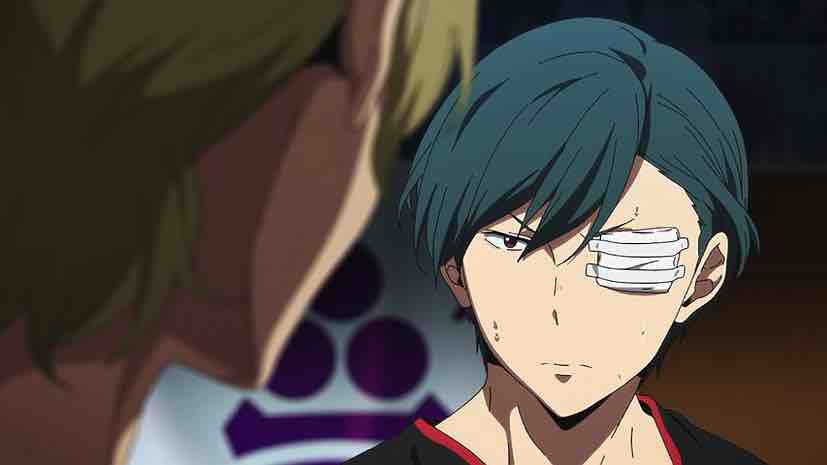 Mikoto’s eye injury is the first headliner. He is fortunate that the eye itself was undamaged but the medic – and Tatsu – are right that any injury in that area really shouldn’t be trifled with. Still, in his shoes I can’t imagine forfeiting – especially when that would mean the end for the guy he’s come to regard as his big brother (at the very least). I was a little surprised they bandaged the whole eye – a butterfly over the cut would have been more logical but I suppose less dramatic. Given what losing vision in one eye does to your depth perception it’s hard to imagine anyone being very competitive against quality opposition under these circumstances.
Mikoto’s eye injury is the first headliner. He is fortunate that the eye itself was undamaged but the medic – and Tatsu – are right that any injury in that area really shouldn’t be trifled with. Still, in his shoes I can’t imagine forfeiting – especially when that would mean the end for the guy he’s come to regard as his big brother (at the very least). I was a little surprised they bandaged the whole eye – a butterfly over the cut would have been more logical but I suppose less dramatic. Given what losing vision in one eye does to your depth perception it’s hard to imagine anyone being very competitive against quality opposition under these circumstances.
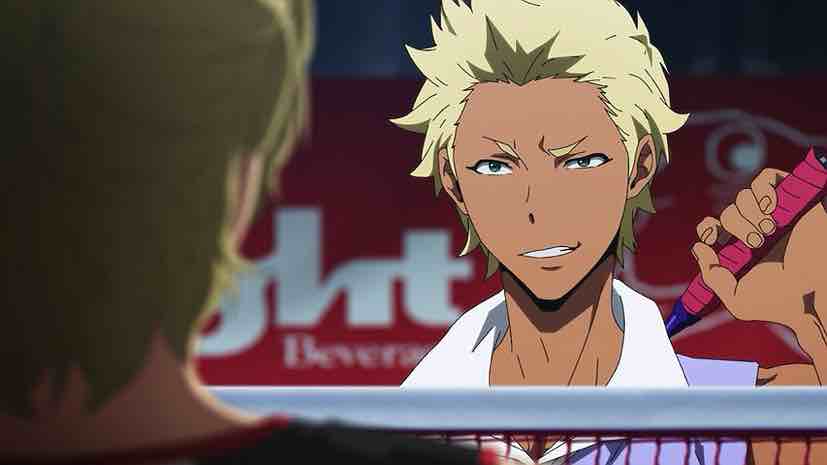 Fortunately Takuma can’t shut his big yapper. I guess guys like him do exist in sports but his obnoxiousness seems to be cranked up for dramatic effect. The practical effect is it pisses Tatsu off and gets him laser-focused, and soon enough Mikoto rips off his eye patch and fully re-engages. Being who he is he’s scoured all the DVDs of the opposition and found a tell with both players, and Izumo is the one they pick on first. He tweaks his grip every time he’s going to hit a touch shot, and they target him armed with that knowledge. This facilitates a comeback and the good guys even the tie.
Fortunately Takuma can’t shut his big yapper. I guess guys like him do exist in sports but his obnoxiousness seems to be cranked up for dramatic effect. The practical effect is it pisses Tatsu off and gets him laser-focused, and soon enough Mikoto rips off his eye patch and fully re-engages. Being who he is he’s scoured all the DVDs of the opposition and found a tell with both players, and Izumo is the one they pick on first. He tweaks his grip every time he’s going to hit a touch shot, and they target him armed with that knowledge. This facilitates a comeback and the good guys even the tie.
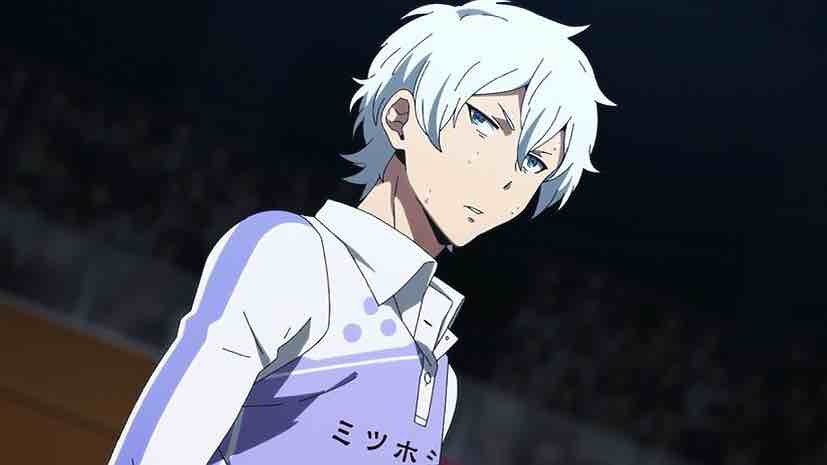 This has the expected effect on Takuma, who basically tells Izumo to pound sand and declares he’ll win the final match on his own. But Mikoto has intel on him too, as regards where he’s likely to hit, and even a player as good as Takuma is going to struggle against a doubles team playing in synch. Eventually Izumo overcomes his toady tendencies and asserts his role in the pair, and thus begins a see-saw battle which (naturally) sees Mikoto’s wound open and start bleeding again at the height of the climax. Tatsu wants to forfeit, but there was never any way Mikoto was going to allow that to happen.
This has the expected effect on Takuma, who basically tells Izumo to pound sand and declares he’ll win the final match on his own. But Mikoto has intel on him too, as regards where he’s likely to hit, and even a player as good as Takuma is going to struggle against a doubles team playing in synch. Eventually Izumo overcomes his toady tendencies and asserts his role in the pair, and thus begins a see-saw battle which (naturally) sees Mikoto’s wound open and start bleeding again at the height of the climax. Tatsu wants to forfeit, but there was never any way Mikoto was going to allow that to happen.
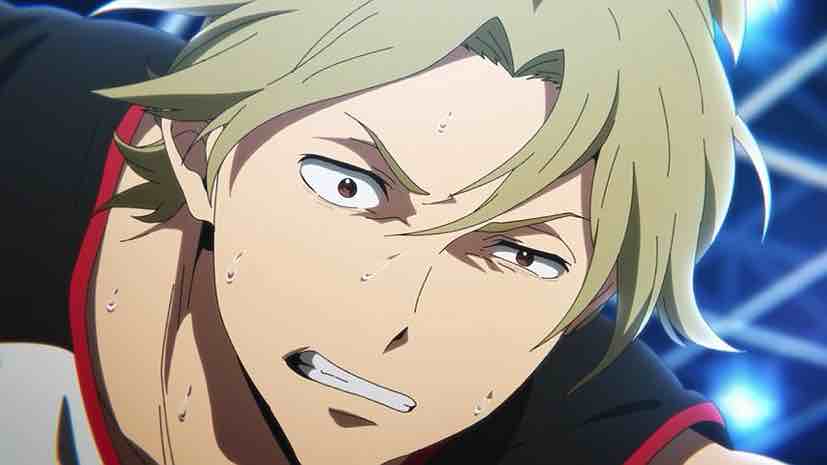 In the final analysis Ryman’s Club is more about the bond between Mikoto and Tatsu than anything else, so it’s fitting that it’s at the center of the resolution. I was pretty sure when Tatsu won the match on a leaping smash he was going to totally blow his ACL out in the process, but the series went for pretty much a total happy ending. The two leads asserted their devotion to each other, Tatsu rehabbed his knee, and negi ginger even took off (thanks to the winners chugging it in celebration after the title). And with Tatsu and Mikoto’s faces on the table in the national team boardroom, it seems anything is possible.
In the final analysis Ryman’s Club is more about the bond between Mikoto and Tatsu than anything else, so it’s fitting that it’s at the center of the resolution. I was pretty sure when Tatsu won the match on a leaping smash he was going to totally blow his ACL out in the process, but the series went for pretty much a total happy ending. The two leads asserted their devotion to each other, Tatsu rehabbed his knee, and negi ginger even took off (thanks to the winners chugging it in celebration after the title). And with Tatsu and Mikoto’s faces on the table in the national team boardroom, it seems anything is possible.
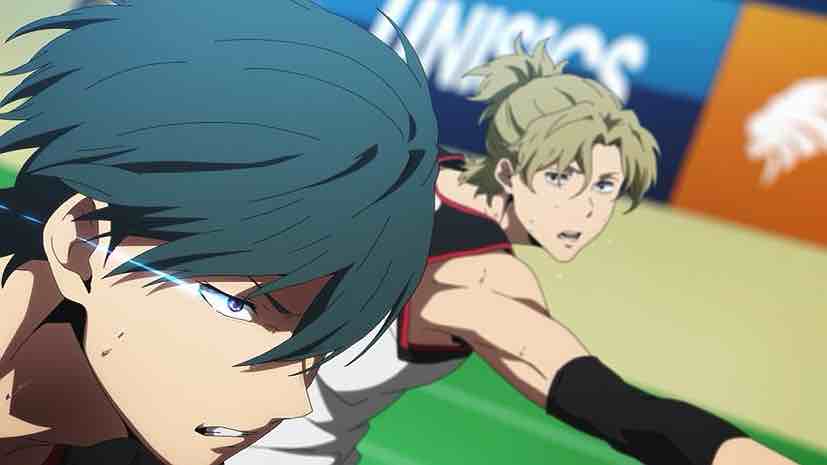 Generally speaking I don’t think original sports anime has a particularly sterling track record, especially in the last couple of years (as the number of them has exploded). Ryman’s Club may, in fact, be the best of them. The production values were surprisingly decent, and it told the sort of story sports anime rarely tells, that of working adults and their love of sports. I found the whole idea of corporate sports surprisingly fascinating – not just the sports but the corporate, too. And as a tale of male friendship if was effective without resorting to pandering the way most all-male sports series do.
Generally speaking I don’t think original sports anime has a particularly sterling track record, especially in the last couple of years (as the number of them has exploded). Ryman’s Club may, in fact, be the best of them. The production values were surprisingly decent, and it told the sort of story sports anime rarely tells, that of working adults and their love of sports. I found the whole idea of corporate sports surprisingly fascinating – not just the sports but the corporate, too. And as a tale of male friendship if was effective without resorting to pandering the way most all-male sports series do.
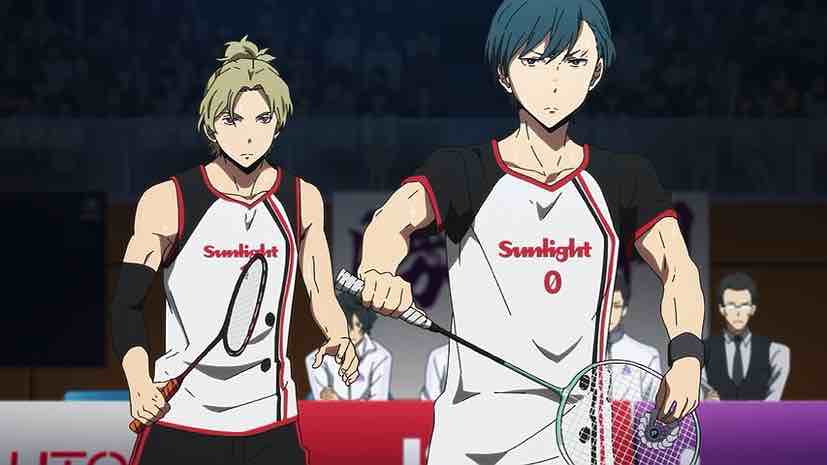 I can’t wrap on Ryman’s Club without praising the work of the cast, and especially Miki Shinichirou. Enoki Junya really grew on me as Mikoto, but Miki’s work was off the charts – no surprise, as it pretty much always is. The Tatsu-Mikoto relationship was a lot deeper than it appeared on the surface, and I appreciated the way the writing (headed by Utsumi Teruko, who co-created Sarazanmai with Ikuhara Kunihiko) let us see that through subtle observations on Mikoto’s life rather than beating us over the head with it. More series about adults is always a good thing for anime, sports or otherwise – but they still have to be good series. And Ryman’s Club certainly was. I’m very happy it ended on such a strong note.
I can’t wrap on Ryman’s Club without praising the work of the cast, and especially Miki Shinichirou. Enoki Junya really grew on me as Mikoto, but Miki’s work was off the charts – no surprise, as it pretty much always is. The Tatsu-Mikoto relationship was a lot deeper than it appeared on the surface, and I appreciated the way the writing (headed by Utsumi Teruko, who co-created Sarazanmai with Ikuhara Kunihiko) let us see that through subtle observations on Mikoto’s life rather than beating us over the head with it. More series about adults is always a good thing for anime, sports or otherwise – but they still have to be good series. And Ryman’s Club certainly was. I’m very happy it ended on such a strong note.


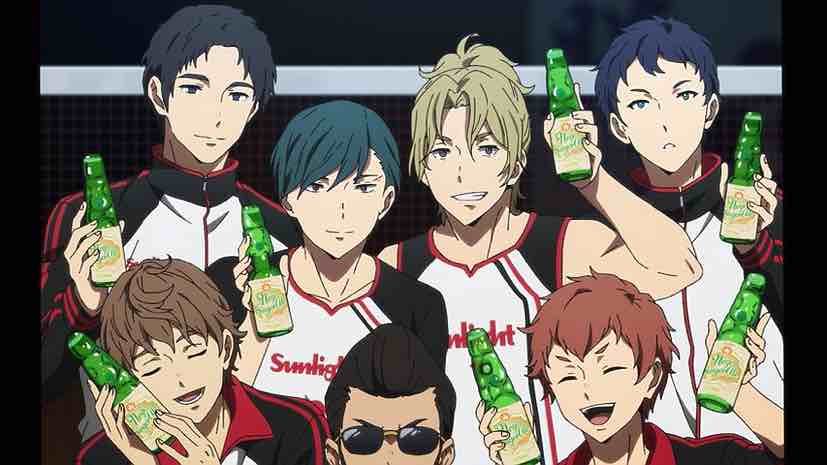

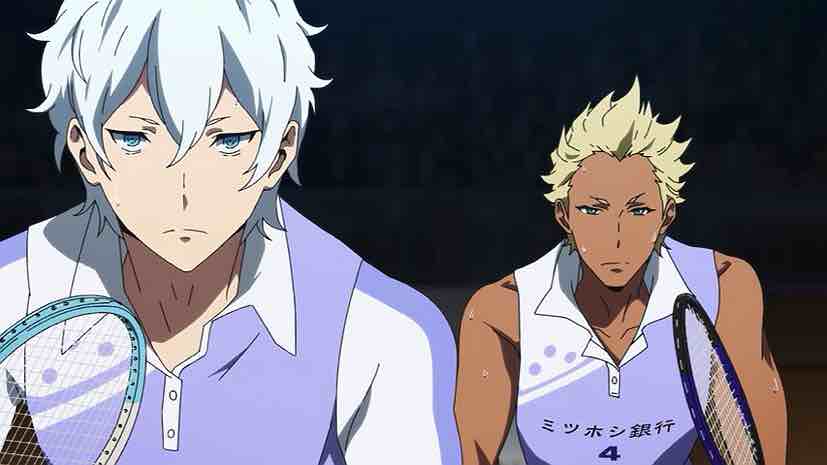
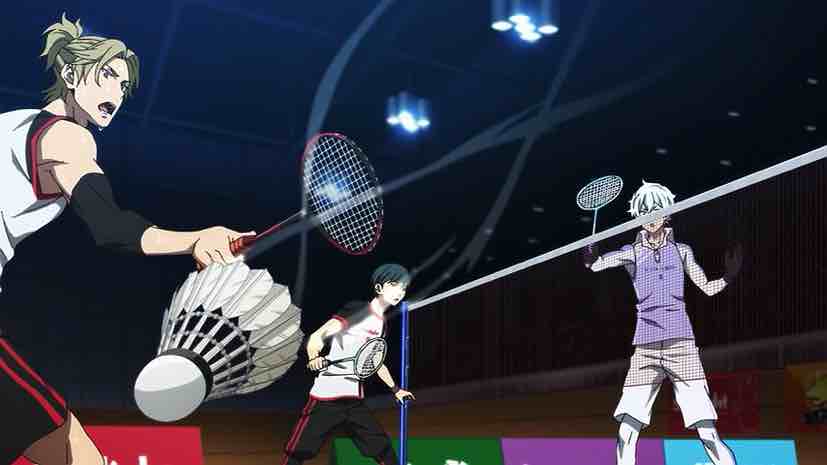
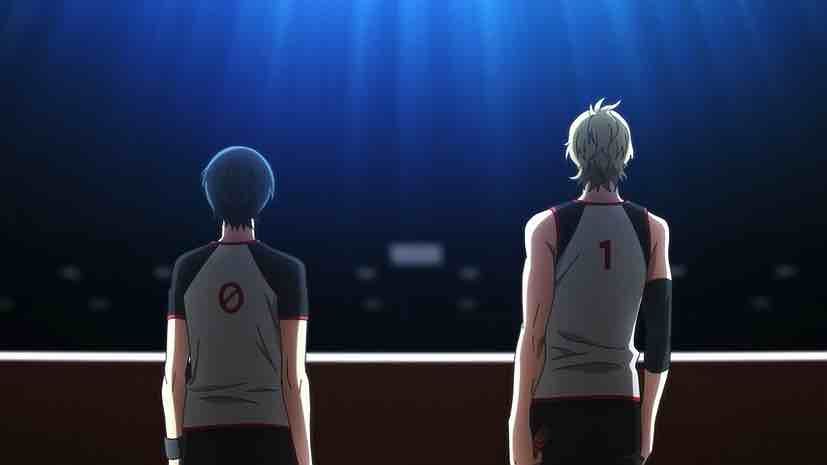

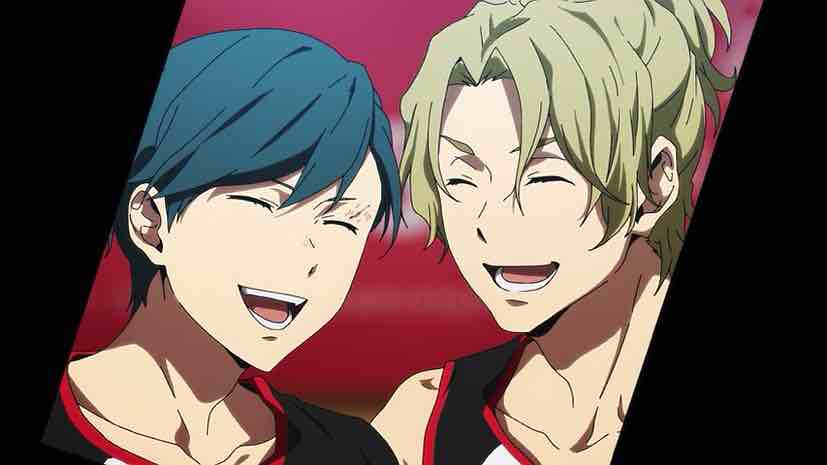

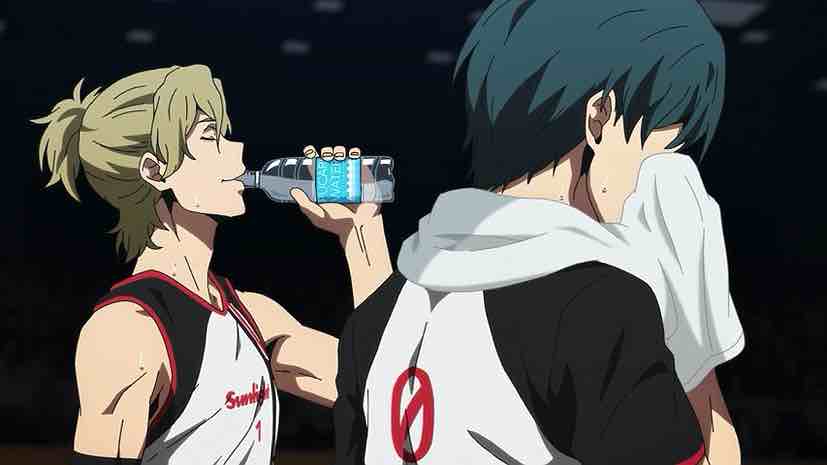
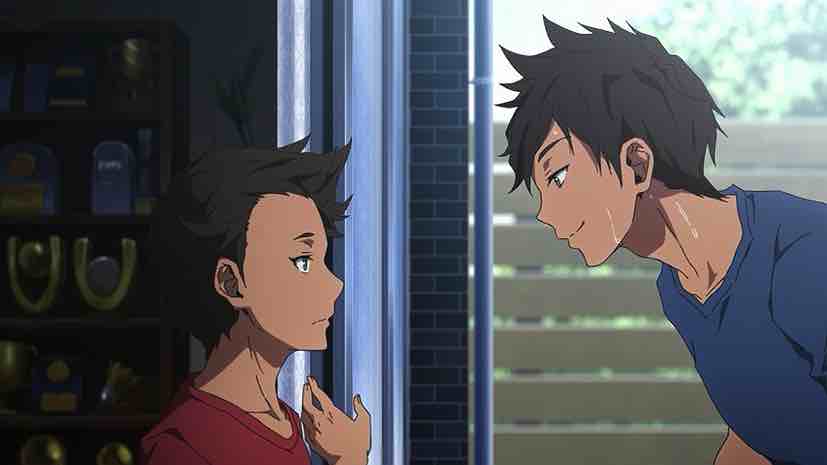

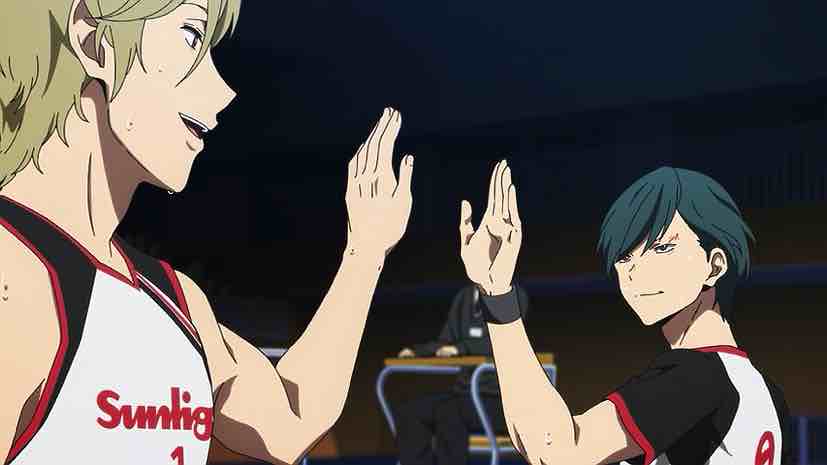
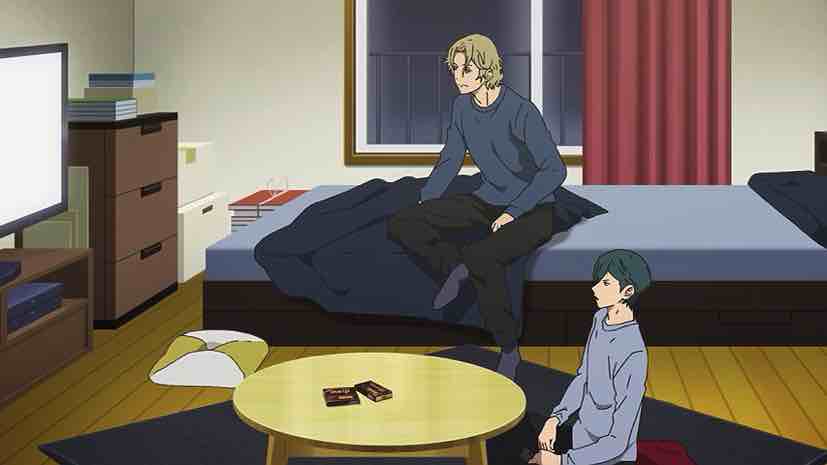
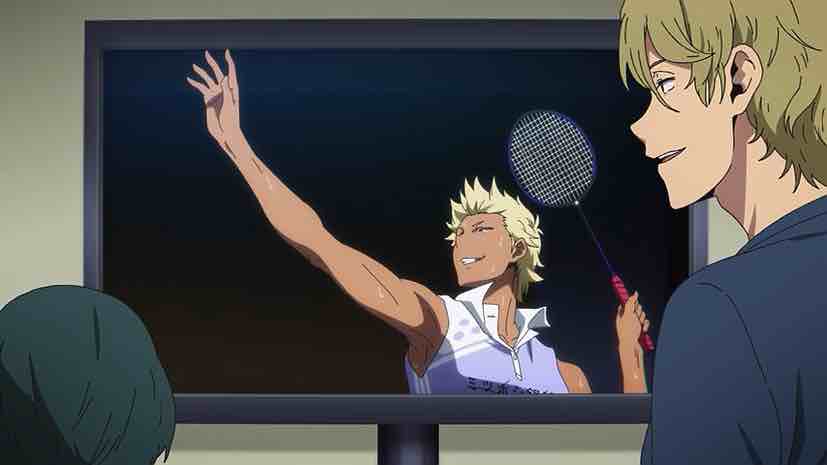


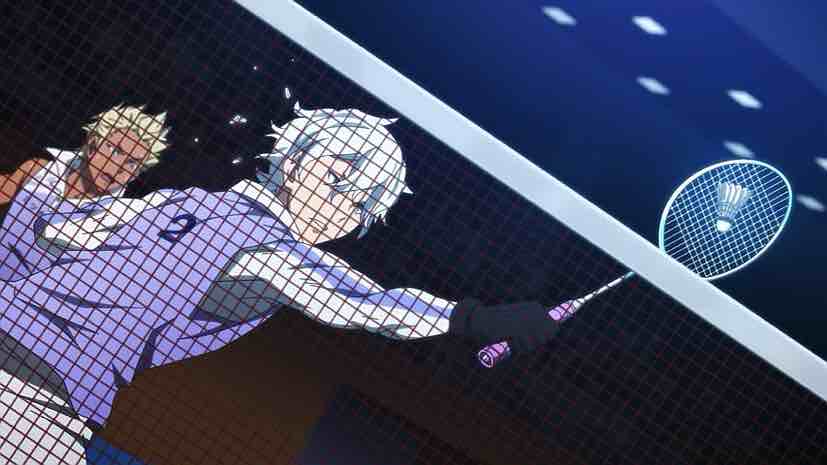
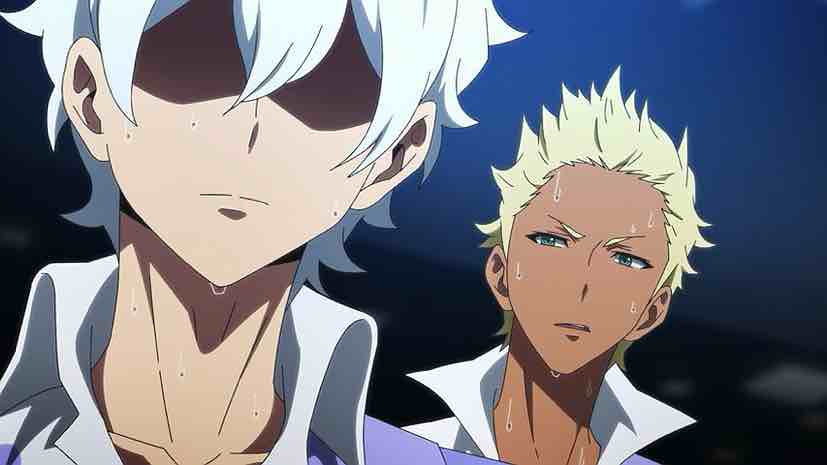
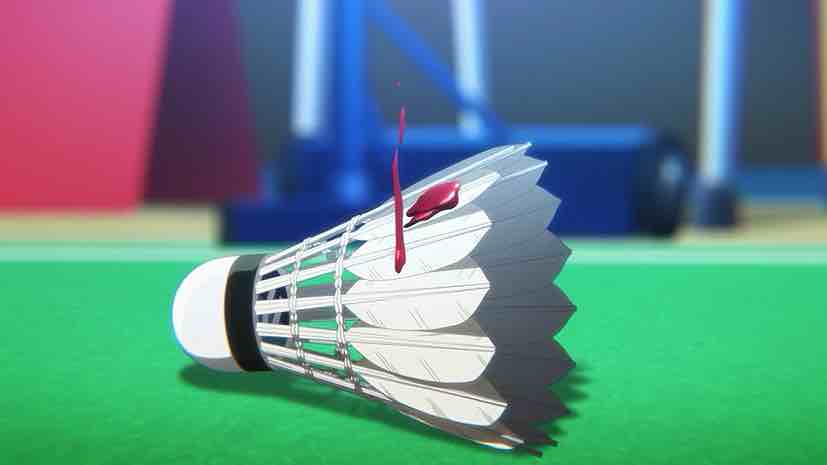
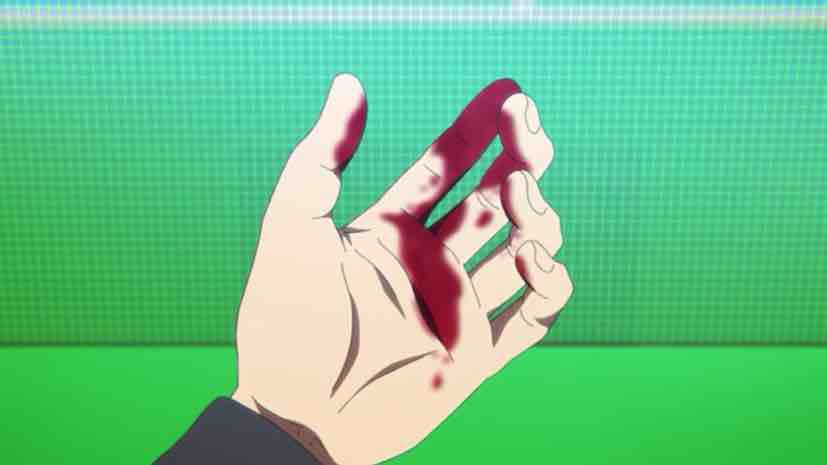
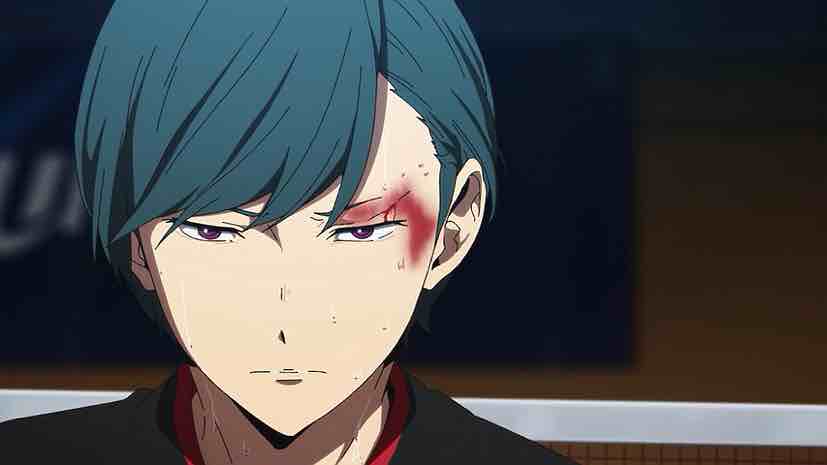
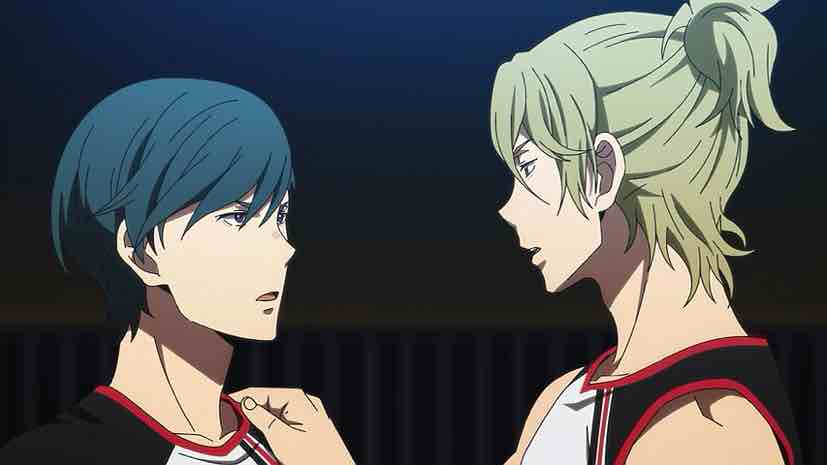
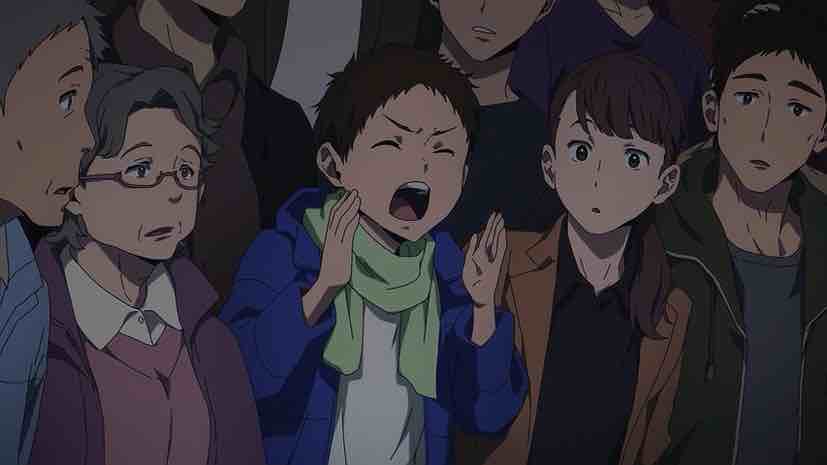
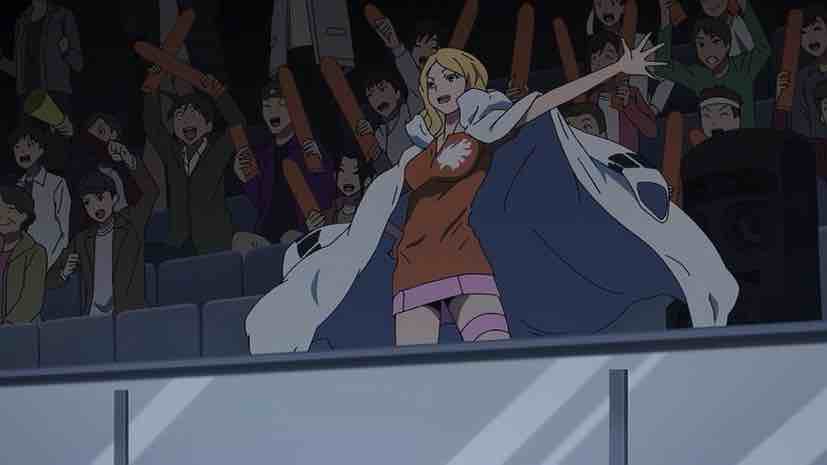
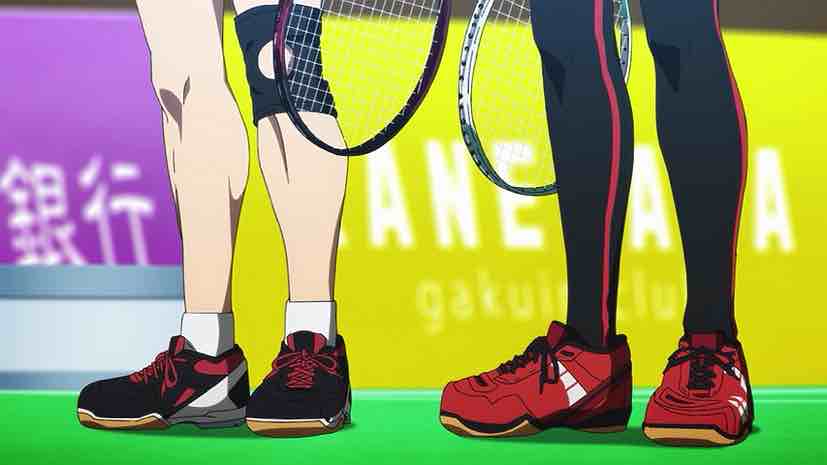
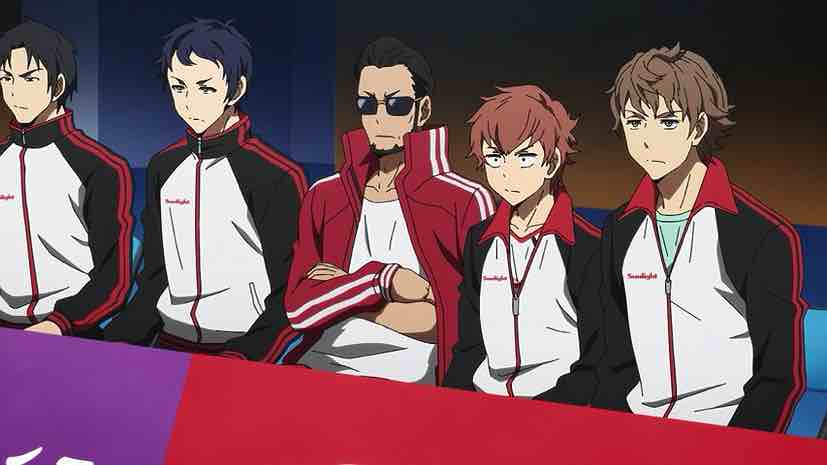

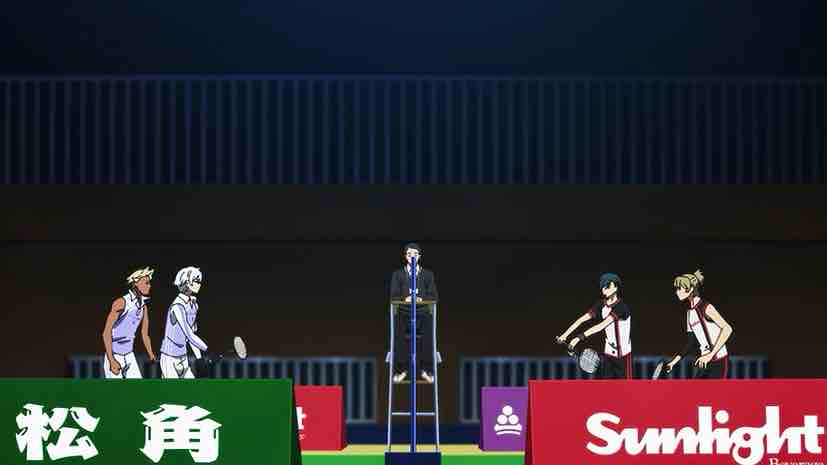


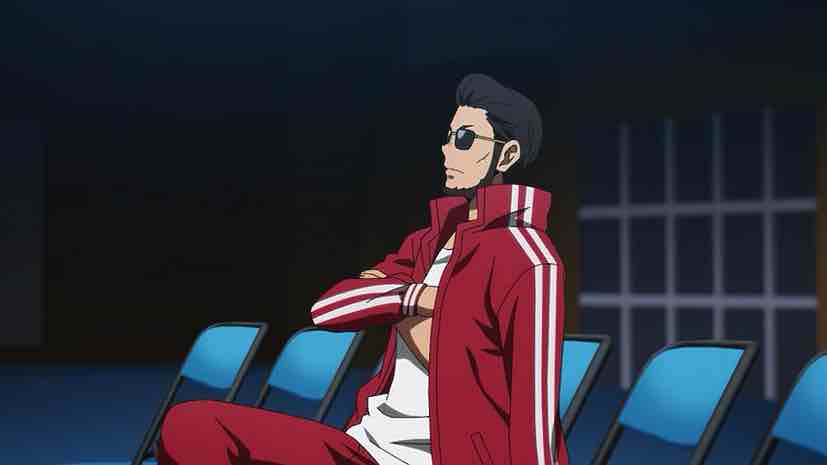
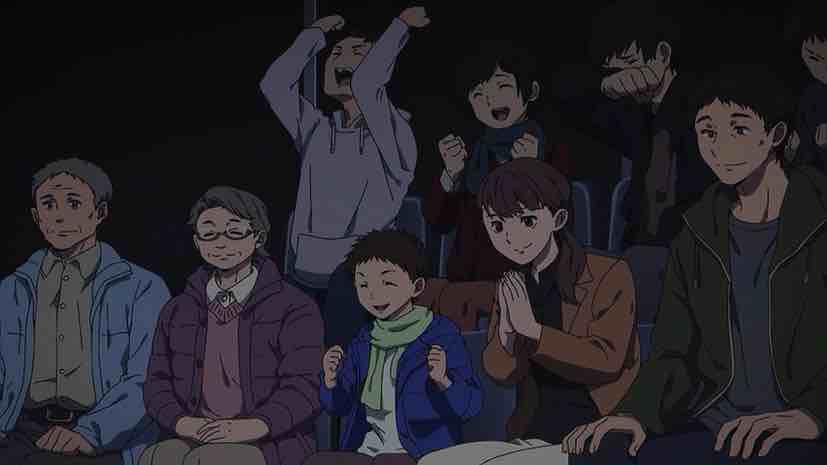
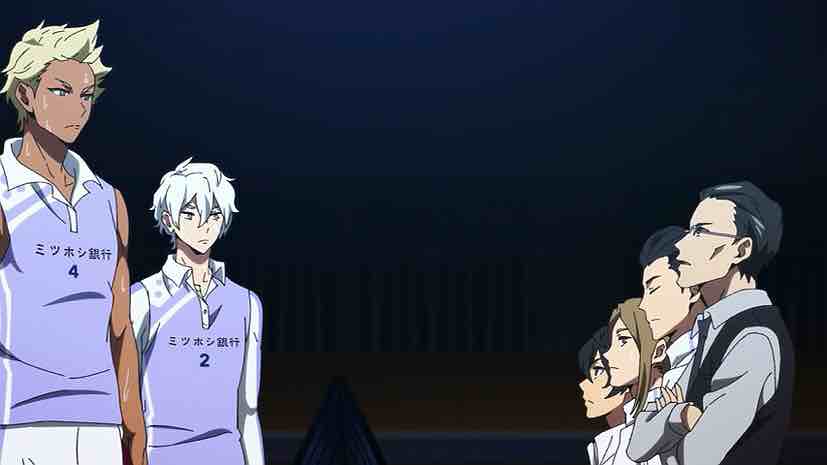
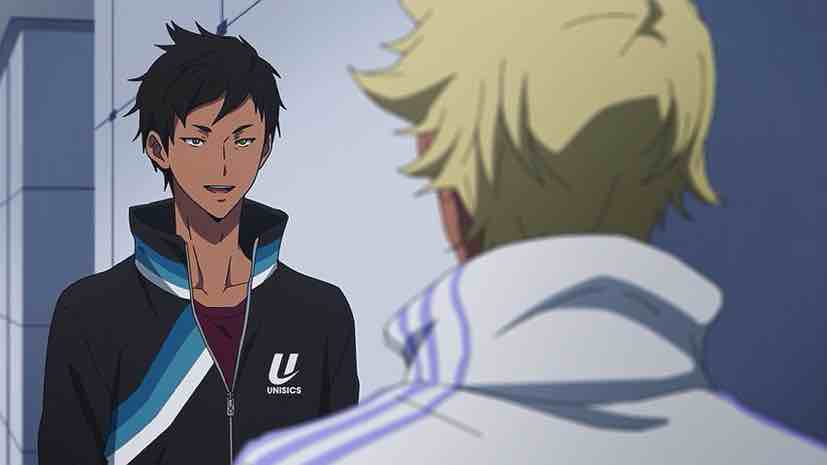
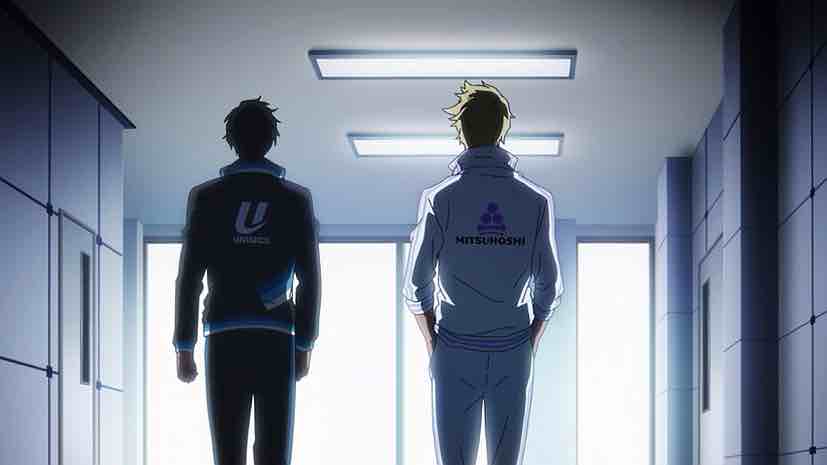
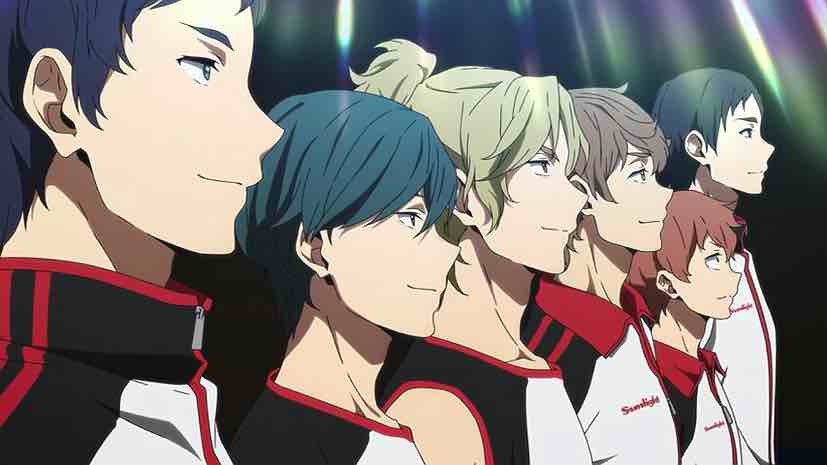


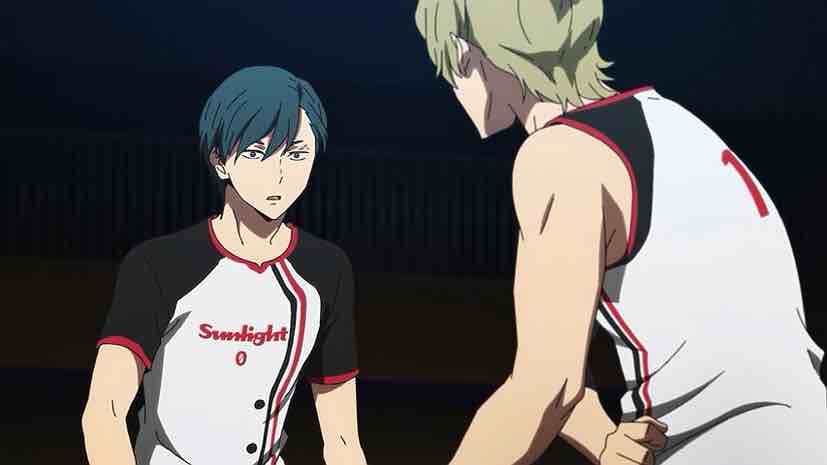
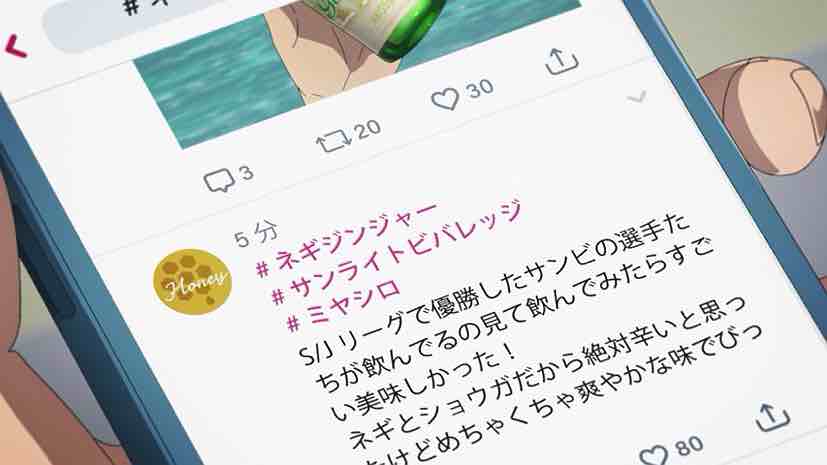

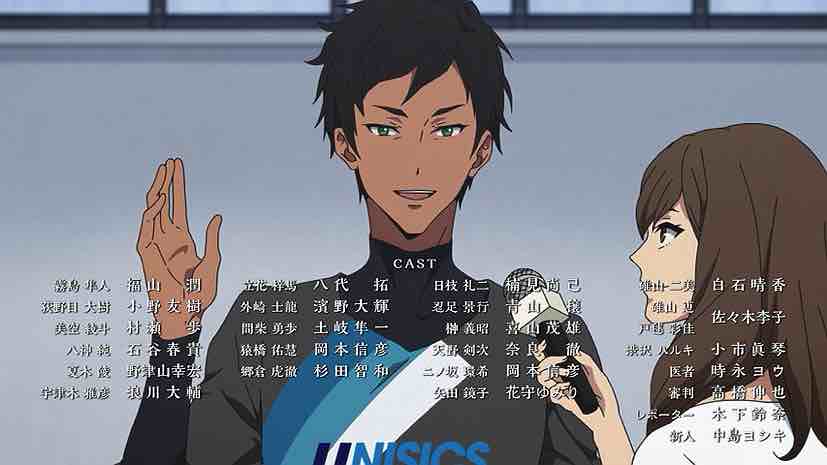
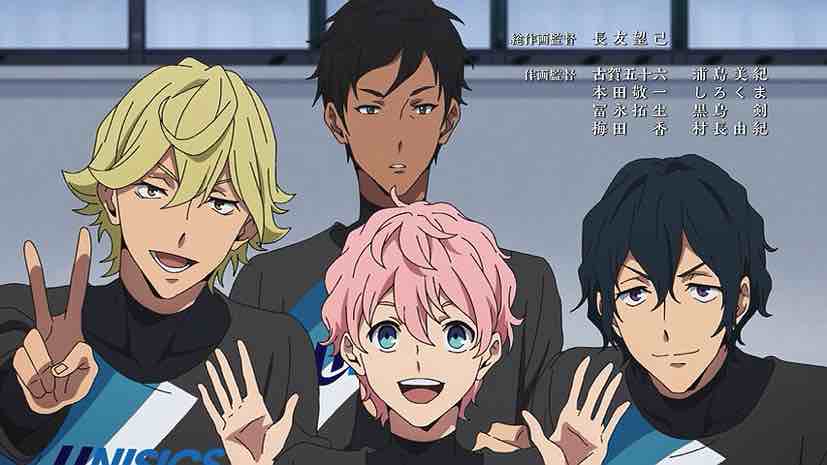
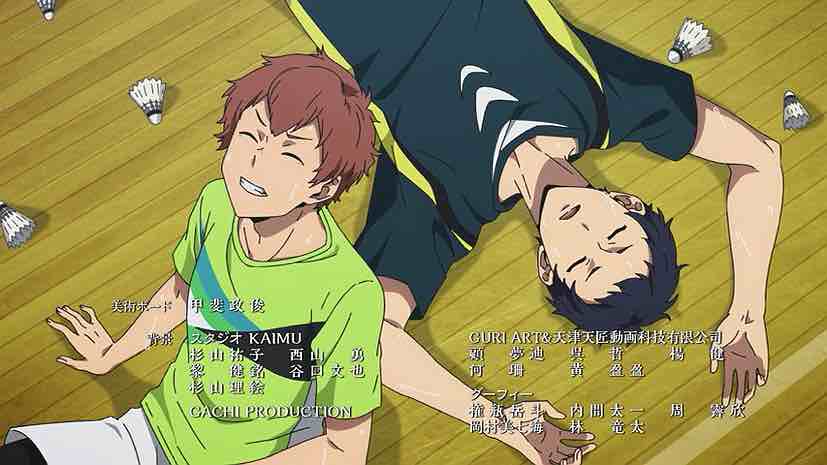
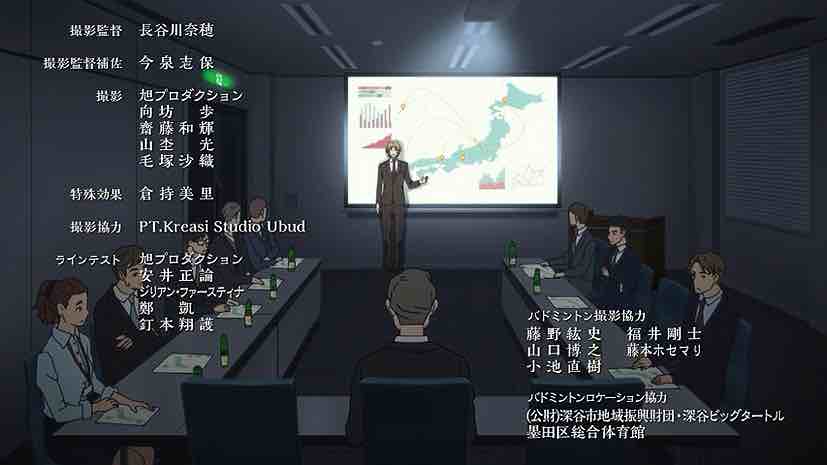

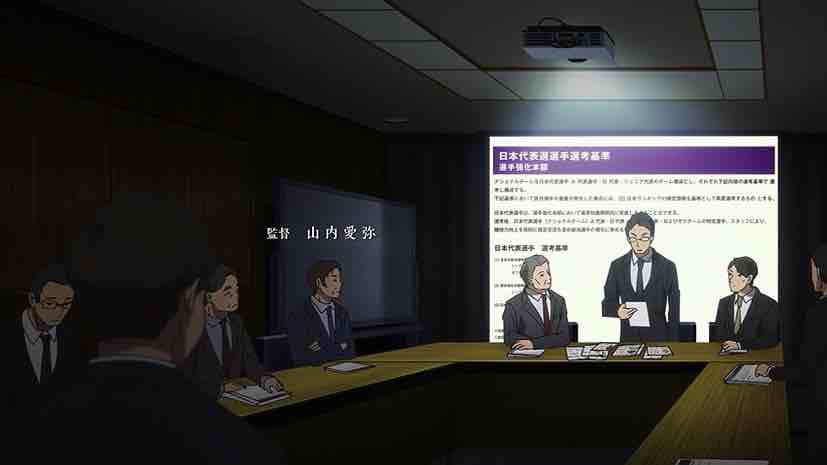

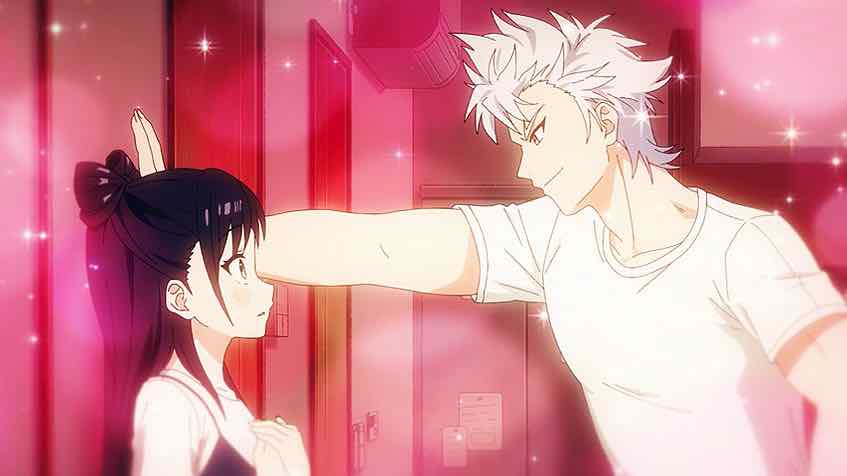
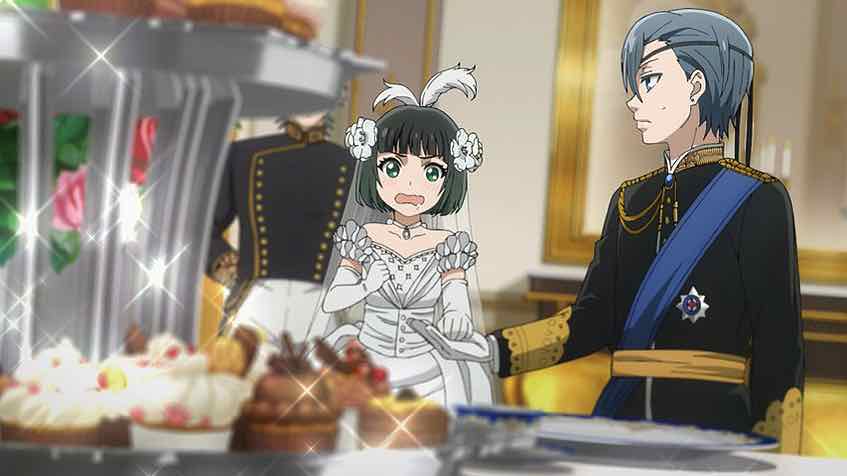
Riv
April 18, 2022 at 1:47 amRyman’s Club definitely was not without a few flaws, but overall I enjoyed it a lot, for all the reasons you point out here. Single cour sports anime are hard to pull off well, and I think the secondary focus on their work lives helped with that and was also one of the most interesting and fun parts of the series. It’s been my favorite single cour sports anime since Tsurune (Although I believe that one wasn’t original but based on a manga). I enjoyed Burning Kabbaddi a lot too, but it was so obviously set up for longer arcs that one cour was too unsatisfying.
Guardian Enzo
April 18, 2022 at 7:40 amI liked Kabbadi too, though that of course was also a manga adaptation and did little more than just adapt a chunk and stop. I would say Keppeki Danshi Aoyama-kun actually did a better job of adapting an ongoing manga and managing to give a certain sense of telling a complete story.
Collectr
April 18, 2022 at 3:53 amYeah, Ryman’s Club stuck the landing, with a tense (if slightly over the top) final match and enough moments afterward to tidy up the loose ends. The Exec Dir subplot boiled down to an opportunity for the boss to tell Mr. Spoil-Sport what corporate sports were really about; the eye injury wasn’t allowed to be more than a distraction. I wish the Exec Dir thread had been replaced with more business and badminton badinage among the badarymen, but it’s a minor price to pay for a serious seinen sports show.
Guardian Enzo
April 18, 2022 at 7:41 amOver the top but again, one cour leads to that with sports anime.
Raikou
April 18, 2022 at 2:32 pmThis is really good sports anime. A fulfilling ending too.
I’m pretty surprised this is first directorial job of the director, and also series composition.
All main cast seiyuu also did a pretty good job, but Miki Shinichiro clearly the heart of the show. If it wasn’t for him, it would be a different show.
Looks like there’s still hope for original sports anime.
Lims
June 10, 2022 at 11:01 pmStarted it because of your commentary and totally enjoyed it.
It surprised me pleasantly and the relationship between the characters was great.
It was nice to see the working and the sport side.
Guardian Enzo
June 11, 2022 at 8:40 amGreat to hear. It was a nice twist on sports anime that we almost never see, and especially with anime-original sports becoming as formulaic as it has, that was wlecome.
Joshua
June 28, 2022 at 12:12 amCompared to this series, Love All Play is grounded to the point of being so mirthless that it’s utterly dull and boring to watch as it checks all of the boxes of what needs to be included from the novels. At least someone cared making this original series even as they ran into limits.